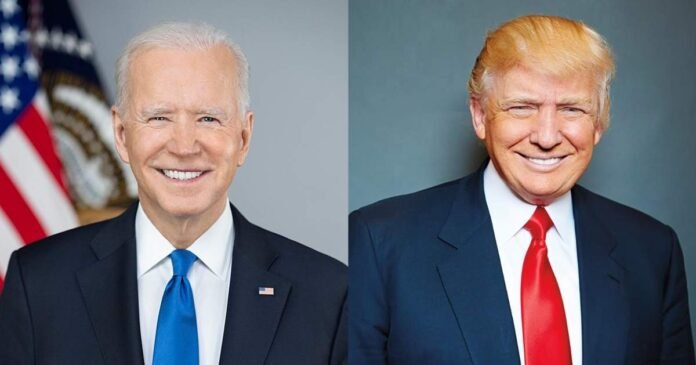In the evolving narrative of the 2024 presidential race, the Republican primary remains technically ongoing. However, the potential pathway to victory for Nikki Haley seems increasingly elusive, paving the way for a high-stakes general election clash between two formidable adversaries.
Months stand between us and the Democratic and Republican conventions, marking the official unveiling of each party’s chosen presidential nominee. Yet, the contours of the 2024 election landscape are taking shape, promising a historic showdown between the current president, Joe Biden, and his immediate predecessor, Donald Trump – a political rematch unprecedented in modern history.
According to Todd Belt, a politics professor at George Washington University, the dynamics of the race undergo a significant shift with two former presidents in contention. He emphasizes that it becomes a comparison rather than a mere referendum on the incumbent, eliminating the luxury of blank slates for voters.
Sean Spicer, former press secretary to Mr. Trump, sees the contrast in simpler terms. He notes that for those who experienced positive changes during Trump’s tenure – improved security, economic prosperity, and community development – the choice is clear. The Trump campaign seizes the opportunity to go on the offensive against Biden, aiming to divert attention from Trump’s own vulnerabilities, including legal challenges, divisive rhetoric, and involvement in disputing the 2020 election results that culminated in the Capitol attack of January 2021.
However, Biden is not without vulnerabilities. Struggling to showcase his first-term accomplishments and convince the public of his energy and suitability for a second term, he frames his predecessor as a destabilizing force, a risky proposition for America and its democracy. Susan Estrich, a Democratic strategist, notes the unusual strategy of portraying a well-known figure as a significant risk in politics.
As the narrative unfolds, the race appears close on a national scale, with polls indicating a tight competition between Biden and Trump. Yet, the significance lies in a select few states, the battlegrounds where the electoral college system determines the outcome. Key states like Wisconsin, Pennsylvania, Michigan, Arizona, and Georgia will once again play a pivotal role in deciding the winner.
Economic factors loom large in the electoral landscape. Despite positive indicators such as steady economic growth, record-low unemployment, and a thriving stock market, Americans harbor a grim perception of their economic situation. Issues like high inflation and soaring housing costs contribute to this perception, with home sales hitting a 30-year low.
Sean Spicer argues that, irrespective of statistics, the economy is a visceral, gut-level issue, emphasizing the challenge of convincing voters of real improvements in their daily lives. Trump positions himself as the candidate who presided over a better economic era, leveraging the rising home mortgage interest rates during Biden’s administration to underscore his point. On the other hand, Biden points to the post-Covid economic recovery under his administration, citing infrastructure investments, tax cuts, and social spending as contributors to improving the lives of working Americans.
Two major issues, abortion and immigration, take center stage as the Biden and Trump campaigns vie for voter attention. The Democrats emphasize the threat to abortion rights under Trump-appointed justices, leveraging public support for pro-choice positions. In contrast, Trump and conservatives focus on immigration, capitalizing on rising border crossings and public concerns about safety and security.
The upcoming presidential race might also see other issues influencing voters, including crime rates, environmental policies, climate change, and foreign affairs. The ongoing Gaza War poses a potential challenge for Biden due to discontent within the Democratic ranks regarding the administration’s support for Israel.
As the longest general election campaign in recent memory unfolds, various unknowns remain. The advanced age of both Biden and Trump introduces the possibility of health-related incidents that could impact their candidacy. The presidential debates in the autumn will scrutinize their energy and composure under pressure.
Furthermore, dissatisfaction with the two major-party options creates an environment conducive to third-party or independent candidates. Figures like Robert Kennedy Jr. and groups like No Labels may play a role in shaping the electoral landscape. Trump’s legal challenges, including 91 charges and four criminal trials, pose uncertainties that could affect the race, especially if a criminal conviction is secured.
The scar of the January 2021 Capitol attack, with Trump accused of incitement, remains a potent memory. While Republicans may be willing to move on, Democrats and crucial independent voters may still harbor reservations. The timing and spectacle of Trump’s trials could influence public opinion, adding an unpredictable element to this already dynamic presidential race.
